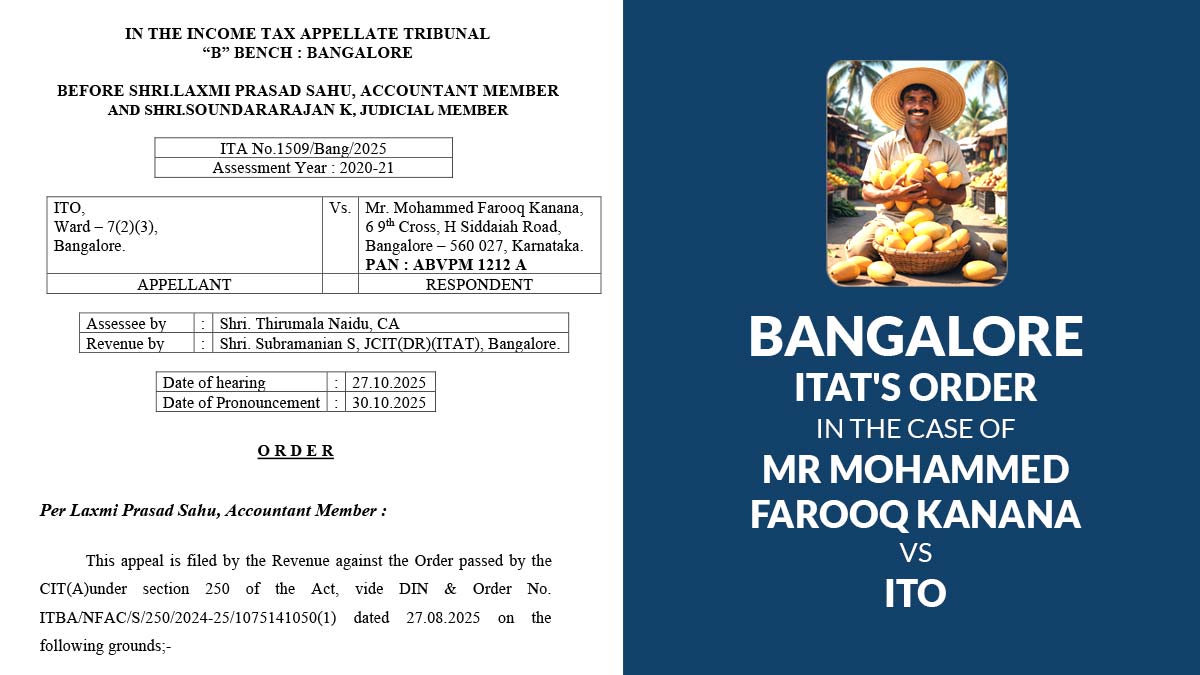
Bangalore ITAT has given a relief to the landowner who reported Rs 1.82 crore income from mango sales, after the Income Tax Department added Rs 1.20 crore as unexplained cash credit under section 68 of the Income Tax Act.
The case comprises a taxpayer from Chittoor district, Andhra Pradesh, who owned around 22 acres of mango orchards. He filed ITR for AY 2020-21 specifying income of nearly Rs 48 lakh. But the question of high receipts from fruit sales has been raised by tax officials, and they treated Rs 1.20 crore as unexplained income.
Tax Department’s claim
The Verification Unit of the department has calculated the mango yield based on online sources, assuming an average yield of 3-4 tonnes per acre and a cost of about Rs 10,000 per tonne, and concluded that the total turnover cannot surpass Rs 43 lakh.
Post computing 50% as expenses, officials computed taxable income at Rs 21.6 lakh and considered the left Rs 1.20 crore as unexplained cash credit, claiming the farmer failed to explain the income source.
Findings of the Tribunal
The appeal of the department has been dismissed by the ITAT Bangalore and upheld the findings of the Commissioner of Income Tax (Appeals), who had previously removed the addition.
The tribunal said that the taxpayer has provided-
- Evidence of customers and revenues, and
- Affidavits from contractors concerned with mango cultivation,
- Proof of agricultural activity on the farm.
It stated that the assessing officer computes based on estimates from the internet without validating the facts, like variety, quality, or actual yield of the mangoes.
“The assessee discharged the burden of proof under Section 68. The Assessing Officer neither examined the buyers nor disproved the evidence filed,” the ITAT stated.
What does it imply to taxpayers?
The ruling supports that when the income from agriculture is backed by documentation, then the tax department cannot only rely on the online estimates to make additions.
The decision stresses the significance of keeping clear records of buyer invoices, sales affidavits, and yield details to prove agricultural earnings.
For farmers and landowners who are engaged in fruit and crop cultivation, the same case sets a precedent that outlines that proper verification and factual assessment should guide tax proceedings instead of assumptions or general data.
| Case Title | Mr Mohammed Farooq Kanana vs ITO |
| Case No. | ITA No.1509/Bang/2025 |
| Assessee By | Shri. Thirumala Naidu |
| Department By | Shri. Subramanian S |
| Bangalore ITAT | Read Order |








